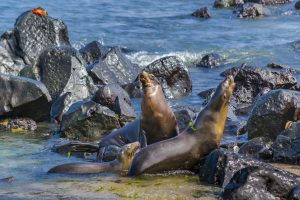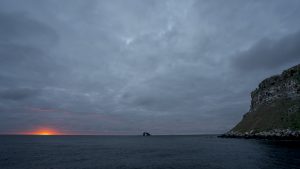There are many islands in Ecuador, some home to small populations, others remote and devoid of civilisation. However, all of them offer unique experiences and are a treat for visitors. One of the most remote is Wolf Island.
Located next to the more well known Darwin Island, it was named after German geologist Theodor Wolf. At just over 1.3 square kilometres of land, it, like Darwin Island, is not open to land visits but is an excellent diving spot.
Things to do on Wolf Island

Visitors to the island get to enjoy a host of diverse marine life such as whale sharks, hammerhead sharks, Galapagos sharks, and several types of whales as well as green turtles, and manta rays. The island also forms a part of the National Park of Galapagos.
The island is rarely visited by tourists as it is a remote island. Only experienced divers dare to step on the island itself. Any tourists thinking of exploring this island should know that there is no resort or campsite to provide them food and shelter. They must arrange everything on their own.
The island can be accessed only by liveaboard vessel. You must be on time to catch the vessel and remember that no one-day trips are provided to this island. Since there is no civilization on the island, there is not much or there is nothing that you can do on the island except for diving.

Enjoy Scuba Diving Here
Wolf Island is located to the northwest direction of the main Galapagos Islands, and, with Darwin Island, is one of the most sought after places among divers. Among the most popular diving sites are The Pinnacle and Shark Bay. Shark Bay is not meant for novices, and only experienced divers who know how to get better of currents and surges should go diving here. Another famous diving site is El Derrumbe which is popular owing to its diversity in marine wildlife.
Wolf Island is also home to large coral reefs, with 8 species of coral. This offers an amazing experience to the visitors of the island.
When to go

Most times of the year are good for divers. From December to May, the water temperature ranges from 21°C to 30°C (or 70°F to 86°F); while from June to November it ranges from 16°C to 24°C (or 60°F to 75°F). Throughout the year, there is visibility of 25 meters (or 82 feet).
As the island is meant for divers mostly, one should be extremely careful if planning to take kids along.
Read more: The other Islands of the Galapagos.